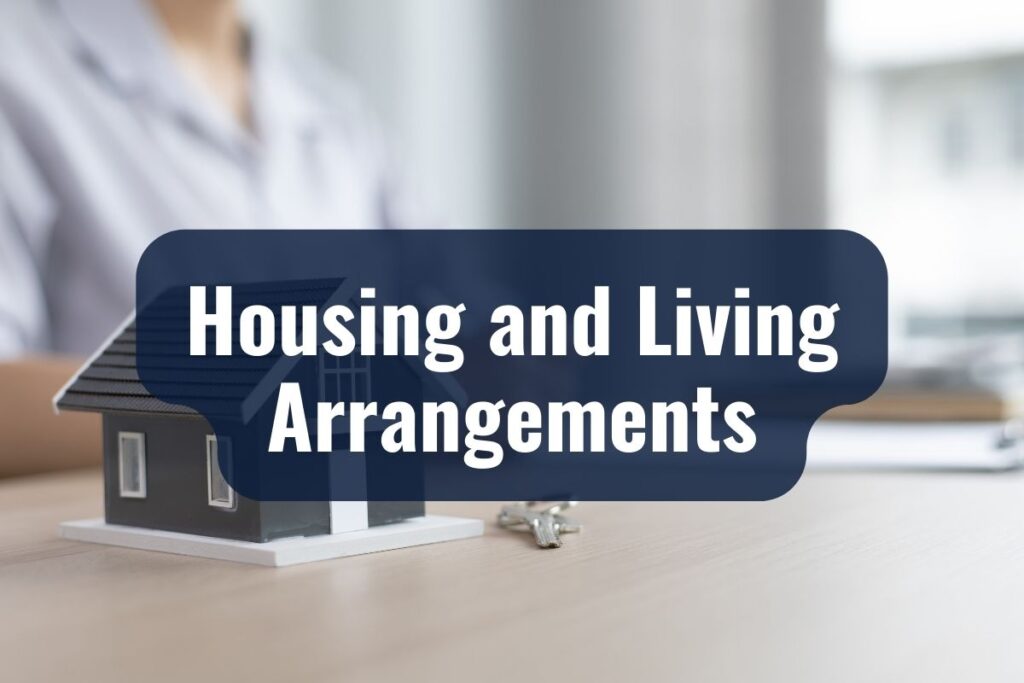We aim to provide essential knowlegde for those considering France as their retirement haven. From understanding visa requirements and pension arrangements to navigating the healthcare system and finding the perfect place to call home, we cover the vital steps to ensure a smooth transition.
Additionally, we look into the practical aspects of daily life, including integrating into French society, managing your finances, and making the most of the vibrant communities and leisure activities available. With this comprehensive overview, retirees can look forward to making informed decisions and enjoying a fulfilling retirement in the heart of Europe.
KEY TAKEAWAYS
- Understand visa types and application processes for retirement in France.
- Organize pension access and be aware of tax implications for retirees.
- Familiarize yourself with the French healthcare system and registration.
- Explore various housing options and popular regions for retirees.
- Language proficiency and cultural integration enhance the living experience.
- Practical daily life tips include banking, transportation, and leisure activities.
Visa Requirements
Overview of the Visa Application Process for Retirees
Embarking on retirement in France begins with understanding the visa application process, which is crucial for non-EU nationals. The process involves selecting the right visa type, gathering the necessary documentation, and meeting specific criteria set by French immigration authorities. Preparation and attention to detail are key to a successful application.
Types of Visas Available for Retirees and Criteria
For retirees, the most relevant visa is the Long-Stay Visa, equivalent to a Residence Permit (Visa de Long Séjour valant Titre de Séjour – VLS-TS). This visa allows retirees to stay in France for more than three months, with the option to apply for residency after five years.
| Visa Type | Description | Criteria |
| Long-Stay Visa (VLS-TS) | Allows stays over three months with the option to apply for residency | Financial self-sufficiency, health insurance, and accommodation proof |
Applicants must demonstrate sufficient financial resources to support themselves without working, providing evidence such as pension statements, savings, or other income sources. Health insurance coverage for the duration of the stay is also a requirement.
Required Documentation and Application Tips
The application must include:
- A valid passport with at least three months validity beyond the visa expiry date
- Proof of financial means, such as pension slips, bank statements, or proof of income from properties
- A letter explaining your reasons for retiring in France
- Proof of health insurance with coverage in France
- Evidence of accommodation in France, whether owned or rented
Pension and Financial Considerations

Accessing Your Pension from Abroad
Retirees planning to move to France must organize how they will access their pension. Most countries allow pension payments abroad, but it’s essential to notify your pension provider of your move and arrange for international transfers.
Investigate potential fees and the exchange rate’s impact on your income. Some retirees opt for services that minimize transfer costs and manage currency risk.
Tax Implications for Retirees in France
Understanding the tax implications is crucial for financial planning. France taxes residents on their global income, which includes pensions.
However, tax treaties between France and many countries prevent double taxation. It’s advisable to consult a tax advisor familiar with both your home country’s and France’s tax systems to navigate this complex area effectively.
Cost of Living Considerations in Different Regions
The cost of living in France varies significantly between urban and rural areas, and from region to region. Paris and the French Riviera, for example, are considerably more expensive than rural parts of France.
Before deciding where to retire, research the cost of living in various areas, including housing, healthcare, utilities, and daily expenses. This investigation will help you align your retirement income with the lifestyle you envision in France.
Healthcare System
How the French Healthcare System Works for Retirees
France’s healthcare system, renowned for its quality and accessibility, operates on a state-funded insurance model. Retirees living in France can access this system, which covers a substantial part of medical expenses, including doctor visits, hospital stays, and prescription medications. Enrollment in the French healthcare system, or Protection Universelle Maladie (PUMa), is essential for long-term residents, ensuring comprehensive coverage.
Registering for Healthcare in France
Registration with the French healthcare system begins by applying for a social security number. This process involves submitting documentation proving your residence status in France, such as a visa or residency permit, and evidence of continuous living in France for at least three months.
Upon approval, you will receive a Carte Vitale, your health insurance card, which you should present at medical appointments and pharmacies to have your expenses partially reimbursed.
Options for Private Health Insurance
While the French healthcare system covers a significant portion of medical expenses, many residents opt for additional private health insurance, known as a “mutuelle.” This insurance covers the remaining costs not reimbursed by the state, including some treatments and services not fully covered by PUMa.
For retirees, considering a mutuelle can offer peace of mind by reducing out-of-pocket expenses for healthcare, ensuring more comprehensive coverage tailored to individual needs.
Housing and Living Arrangements

Types of Housing Available for Retirees
Retirees in France can choose from a variety of housing options, tailored to different lifestyles and budgets. Apartments in bustling city centers offer proximity to culture and amenities, while houses in the countryside provide peace and natural beauty. Additionally, retirement villages and communities are becoming increasingly popular, offering tailored services and a sense of community.
Tips for Finding and Renting or Buying Property
Finding the right home in France involves research and possibly the assistance of a real estate agent, especially for those not fluent in French. For renters, it’s common to provide proof of income and sign a lease for a minimum of one year.
Buyers should be aware of additional costs such as notary fees and property taxes. Engaging a local real estate agent can simplify the search and negotiation process, ensuring you buy a home that meets your retirement needs.
Overview of the Most Popular Areas for Retirees and What Makes Them Appealing
Several regions in France are particularly attractive to retirees, each with its unique charm:
- The South of France, including Provence and the French Riviera, is famed for its sunny climate, Mediterranean lifestyle, and stunning landscapes.
- Brittany and Normandy appeal to those looking for cooler climates, historic towns, and coastal beauty.
- The Dordogne and the Loire Valley attract retirees with their picturesque villages, vineyards, and slower pace of life.
- For urban enthusiasts, cities like Lyon, Bordeaux, and Toulouse offer rich culture, excellent healthcare, and vibrant expat communities without the Paris price tag.
Integration into French Society
Language Barriers and Solutions
Mastering the French language is a cornerstone of integrating into French society. While many French people speak English, especially in larger cities and tourist areas, daily life and administrative processes predominantly operate in French.
Enrolling in language courses, using language learning apps, and practicing with locals can accelerate language proficiency. Community centers and local expatriate groups often offer language exchange sessions that can be both helpful and socially enriching.
Cultural Nuances Important for Everyday Life
Understanding and embracing French cultural nuances can significantly enhance the retirement experience. This includes appreciating the importance of food in French culture, observing local customs and etiquette, and participating in national and local festivals.
French society values politeness, so learning basic etiquette such as greetings and expressions of gratitude is essential. Engaging with neighbors and local community activities can also provide deeper insight into French culture and foster meaningful connections.
Community Resources and Social Opportunities for Retirees
France offers a wealth of community resources and social opportunities to help retirees integrate and thrive:
- Local expatriate organizations and clubs provide a network for sharing experiences and advice.
- Cultural associations and leisure clubs offer activities ranging from arts and crafts to sports and hiking, facilitating social interaction with locals sharing similar interests.
- Volunteer opportunities enable retirees to contribute to their communities, meet people, and practice the language in a natural setting.
Practical Daily Life Tips

Opening a Bank Account and Managing Finances
Opening a local bank account is a key step in setting up your new life in France. This facilitates bill payments, receiving pensions from abroad, and managing daily expenses. Choose a bank offering services in English to ease communication.
Be prepared to provide proof of residence, identification, and possibly proof of income. Online banking options can also simplify financial management, allowing you to handle transactions and monitor accounts from home.
Transportation Options and Getting Around
France boasts an extensive public transportation network, including trains, buses, and metros, particularly efficient in urban areas. For retirees living in rural areas or those who wish to explore beyond their locale, purchasing or leasing a car might be beneficial. Understanding the French transportation system, including discount programs for seniors, can significantly enhance mobility and independence.
Shopping, Dining, and Leisure Activities
France is celebrated for its markets, shops, and dining establishments, ranging from casual bistros to fine dining restaurants. Embrace the local shopping culture by visiting weekly markets for fresh produce, cheeses, and meats. Dining out offers not just a taste of French cuisine but also a window into French social life.
Additionally, France’s rich cultural heritage is reflected in its myriad of leisure activities, including museums, galleries, theaters, and historical sites, many of which offer discounts for seniors. Engaging in these aspects of French life not only enriches daily living but also fosters a deeper connection with the local culture and community.
Legal and Administrative Procedures

Essential Legal Documents and Procedures for Retirees
Retirees in France must familiarize themselves with the necessary legal documents and administrative procedures to ensure compliance with French laws. Key documents include your visa or residency permit, proof of healthcare enrollment, and tax identification number. Regularly updating these documents and staying informed about any changes in legislation that may affect your status is crucial for a hassle-free retirement.
Staying Compliant with French Law as a Foreign Resident
Compliance with French law involves more than just legal residency. It extends to tax obligations, healthcare registration, and adherence to local regulations.
For instance, if you own a vehicle, it must be registered in France and meet local emissions standards. Similarly, if you decide to work part-time or engage in any business activities, you must declare this income and pay the applicable taxes.
Renewing Visas and Residency Status
Long-stay visas typically require renewal or conversion into a residency permit after a certain period. This process involves demonstrating continued financial self-sufficiency, healthcare coverage, and, in some cases, integration into French society, such as language proficiency. Planning for these requirements well in advance of your renewal date can prevent any interruptions in your residency status.
Resources and Support Services
List of English-Speaking Services and Support Groups for Expatriates
Retirees in France can access a range of English-speaking services and support groups designed to ease the transition into French society. These include healthcare providers offering services in English, legal and financial advisors familiar with the needs of expatriates, and real estate agents who can assist in finding the right home. Additionally, many local prefectures and municipalities provide integration services, including language courses and cultural orientation programs.
Important Contacts: Embassies, Legal Aid, and Expat Communities
Embassies and Consulates: Your home country’s embassy or consulate can be a vital resource for legal advice, emergency assistance, and information on bilateral agreements that might affect your pension or healthcare.
Legal Aid: There are organizations offering legal services in English to help navigate French law, from residency and citizenship to property and tax laws.
Expat Communities: Joining expat communities provides a network of support for sharing experiences, advice, and friendship. Websites, forums, and social media groups dedicated to expats in France can be invaluable resources.


